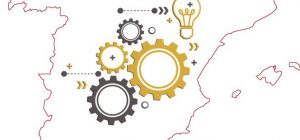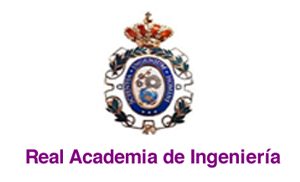 Muchos negocios en la economía digital se estructuran en torno a lo que denominamos plataformas digitales. Apple, Google, Amazon y Facebook son plataformas, y hasta el 70% de los nuevos unicornios, con Uber a la cabeza, también. En EE UU y Asia los negocios basados en plataformas representan una parte sustancial de la nueva economía digital. Europa, sorprendentemente, contribuye solo un 4% a la capitalización total de estas plataformas globales.
Muchos negocios en la economía digital se estructuran en torno a lo que denominamos plataformas digitales. Apple, Google, Amazon y Facebook son plataformas, y hasta el 70% de los nuevos unicornios, con Uber a la cabeza, también. En EE UU y Asia los negocios basados en plataformas representan una parte sustancial de la nueva economía digital. Europa, sorprendentemente, contribuye solo un 4% a la capitalización total de estas plataformas globales.
Es evidente que algo debemos hacer si queremos que Europa aproveche lo que aún está por venir en la economía digital, que es mucho. Así lo entiende la CE, que ha publicado recientemente dos comunicaciones sobre los retos y oportunidades que las plataformas digitales representan para el mercado único europeo; y sobre la denominada economía colaborativa.
California for Europe
 A reflection of the almost finished year: at the same time that the Cotec Foundation for Innovation celebrated its “the must” spring event, near Seseña a tyre bonfire was burning full flame. Those lost tyres could have become a business opportunity, an important service for our community and to the environment. Since the 70s the MIT professor Nichols Ashford, and more recently, Andrea Renda, from the CEPS European think tank, find evidence that an adequate regulation can create innovation, particularly to face the grand societal challenges. On the contrary, an inappropriate regulation can not only worsen the emerging opportunities, but prevent the potential innovators, professionals and entrepreneurs to innovate at all.
A reflection of the almost finished year: at the same time that the Cotec Foundation for Innovation celebrated its “the must” spring event, near Seseña a tyre bonfire was burning full flame. Those lost tyres could have become a business opportunity, an important service for our community and to the environment. Since the 70s the MIT professor Nichols Ashford, and more recently, Andrea Renda, from the CEPS European think tank, find evidence that an adequate regulation can create innovation, particularly to face the grand societal challenges. On the contrary, an inappropriate regulation can not only worsen the emerging opportunities, but prevent the potential innovators, professionals and entrepreneurs to innovate at all.
But as institutions are bearers of history, people are the wheels of the future. For example, the European Commission, has put into practice the so called innovation deals, using as a reference the previous Dutch experiences. It is refreshing to see an economic commissioner taking control over a directorate-general, usually ruled by the scientific logic. This combination of regulation and risk taking must be completed with a clear performance-oriented goal, because if something positive can be extracted from this crisis, is precisely the invitation for all of us, individuals and institutions, to rethink our previous stance, and go further than the established.
However, if all the innovations are novelties, not every novelty is innovation. In Spain, we embraced the United Kingdom model and the Business Innovation and Skills, but its application to the Economy hasn´t been able so far to achieve a new social agreement for innovation and science. The investment for our Spanish model of R&D+innovation will have another four years’ opportunity. No one will be able to say that two terms in office aren´t enough, and that they didn´t have the opportunity to think about the non-achieved objectives and how to get back on track. As Oscar Wilde said: “There is no such thing as a moral or an immoral book, books are well written or badly written”…
Read to the full article in Spanish in Cinco Días
Una California para Europa
 Una imagen en un año pronto ya a su final: al tiempo que la Fundación Cotec para la Innovación celebraba su evento Imperdible en primavera, ardía cerca de Seseña una pira de neumáticos que una buena y temprana regulación habría convertido en una oportunidad de negocio, un gran servicio a nuestra sociedad y a nuestro medio ambiente. Ya desde los años 70 el profesor del MIT Nicholas Ashford y, más recientemente, Andrea Renda, del think tank europeo CEPS, encuentran evidencia de que una regulación adecuada puede crear innovación, particularmente para hacer frente a los grandes retos sociales. Por el contrario, una equivocada puede hacer no solo que las oportunidades se malogren, sino que los potenciales innovadores, profesionales y emprendedores en general, se inhiban y descarten hacer de la necesidad, virtud.
Una imagen en un año pronto ya a su final: al tiempo que la Fundación Cotec para la Innovación celebraba su evento Imperdible en primavera, ardía cerca de Seseña una pira de neumáticos que una buena y temprana regulación habría convertido en una oportunidad de negocio, un gran servicio a nuestra sociedad y a nuestro medio ambiente. Ya desde los años 70 el profesor del MIT Nicholas Ashford y, más recientemente, Andrea Renda, del think tank europeo CEPS, encuentran evidencia de que una regulación adecuada puede crear innovación, particularmente para hacer frente a los grandes retos sociales. Por el contrario, una equivocada puede hacer no solo que las oportunidades se malogren, sino que los potenciales innovadores, profesionales y emprendedores en general, se inhiban y descarten hacer de la necesidad, virtud.
Pero si las instituciones son portadoras de la historia, las personas son motores del futuro. Así, por ejemplo, la Comisión Europea ha puesto en marcha los llamados innovation deals tomando como base experiencias holandesas previas, y resulta estimulante ver a un comisario económico al frente de una DG tradicionalmente dominada por la lógica de la ciencia. Esta combinación de regulación y apetito por el riesgo debe completarse con una clara orientación a resultados, porque si algo bueno tienen las crisis es precisamente la invitación para que todos, instituciones e individuos, repiensen su labor e ir quizá un poco más allá de lo que es la obligación debida.
Ahora bien, si toda innovación supone una novedad, no toda novedad es una innovación. En España, adoptamos el modelo del Reino Unido y el Business Innovation and Skills pero el paso por Economía no ha servido, por ahora, para lograr un nuevo contrato social por la ciencia y la innovación. La apuesta por nuestro castizo modelo de la I+D+i tendrá otra oportunidad de cuatro años. Nadie podrá decir que dos legislaturas no son suficientes y que no se ha tenido la oportunidad de reflexionar sobre los objetivos no alcanzados y cómo corregir el rumbo. Oscar Wilde lo decía: no hay obras literarias morales o inmorales, sino sencillamente buenas o malas.
Link al artículo completo en Cinco Días
Real Academia de Ingeniería (ES)
 La Real Academia de Ingeniería es una institución a la vanguardia del conocimiento técnico, que promueve la excelencia, la calidad y la competencia de la Ingeniería española en sus diversas disciplinas y campos de actuación.
La Real Academia de Ingeniería es una institución a la vanguardia del conocimiento técnico, que promueve la excelencia, la calidad y la competencia de la Ingeniería española en sus diversas disciplinas y campos de actuación.
El activo principal de la Real Academia de Ingeniería viene constituido por sus académicos: 60 destacados profesionales de las distintas disciplinas de la Ingeniería y la Arquitectura, provenientes de los ámbitos académico y empresarial, que desarrollan su cometido de fomentar la calidad y la competencia de la Ingeniería española.
A través de una extensa red que la vincula con universidades, empresas, industria, fundaciones, otras reales academias, administración pública, organismos internacionales y medios de comunicación, la Real Academia de Ingeniería desarrolla su actividad como “think tank” de la Ingeniería.
La RAI aporta valor mediante la publicación de sus informes y declaraciones institucionales sobre asuntos de actualidad con implicaciones técnicas decisivos para nuestro país. Además, está cualificada para asesorar de forma imparcial, equilibrada y competente a la industria, distintas administraciones, autoridades comunitarias y cuantos organismos lo requieran.
The Royal Academy of Engineering (ES)
 The Royal Academy of Engineering is an institution that is at the vanguard of technical knowledge, that promotes excellence, quality and competence of Spanish Engineering in their diverse disciplines and acting fields.
The Royal Academy of Engineering is an institution that is at the vanguard of technical knowledge, that promotes excellence, quality and competence of Spanish Engineering in their diverse disciplines and acting fields.
The principal asset of the Royal Academy of Engineering comes from the academics that compose it: 60 outstanding professionals from different disciplines of Engineering and Architecture, from both the Academic and the Business environment, that develop their duty of fomenting quality and competitiveness within the Spanish Engineering.
Through a vast network that links universities, companies, industries and foundations, other Royal Academies, the public administrations, international organisms and the media, the Royal Academy of Engineering develops its activity as an Engineering “think tank”.
The RAI add value through the publishing of their reports and institutional statements about actual issues with decisive technical implications for our country. It is also qualified to asses in an impartially, balance and competent way to the industries, different administrations, European authorities and other organisms that require it.